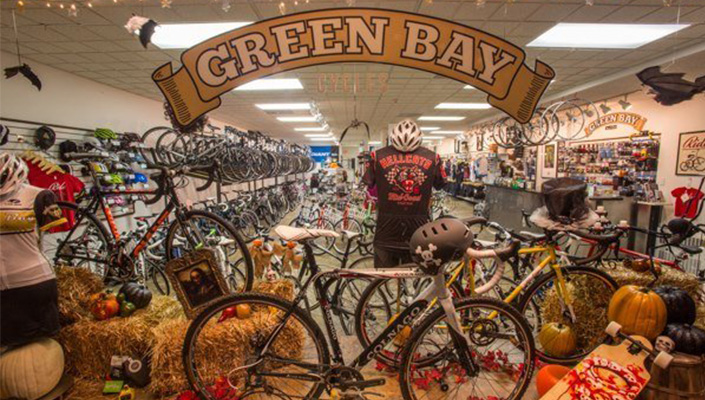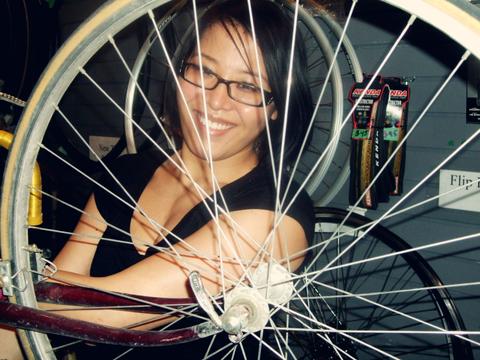
I knew of a guy who had a novel approach to judging whether a bike shop was up to scratch. Whenever he had a tire or tube replaced by a bike shop he had a pedantic way of checking to see if the job was done properly. To put it simply, it was about the alignment of the tube valve to the brand markings on the tire.He believed lining them up not only improved the aesthetics but made it easier to find the valve stem.
And yes, he has a point, it does look a bit neater, but to use that as a way of ascertaining the value of a shop and its staff... My partner has a silly saying "curly, wurly, cuckoo" and I think the description is apt.
As in this fellow's case, we tend to make judgements based on our expectations. If what we get is above our expectation = shop is good, below = shop is bad. The main problem with expectations is they are purely about our own wants and needs and don't take into account the reality of dealing with other people, let alone the sometimes chaotic environment in a bike shop.
We are constantly fed the story that the saviour of the local bike shop in the internet age is customer service. But let us be careful here. Far too many people believe customer service equates to "entitlement". For example: I want it this way, for this much, right now, and I don't care who gets hurt to achieve it. Sometimes it isn't possible and people often don't like being told "no".

I worked in retail for ten years and heard the old meme "the customer is always right" over and again. Well no, the customer isn't always right at all. Sometimes the customer is an idiot and needs to be asked to leave the store. The problem is that a bike shop's customer base is more finite than the global reach of an internet store and resultantly more affected by word of mouth and general opinionated gas-bagging.
On the other side, bike shops aren't perfect. I was a cyclist before working in retail bike stores and had many experiences of the "cliquey" bike shop. It's the school yard syndrome: "we're in the club and you're not invited (until you prove yourself)." Not particularly encouraging to the newcomer to cycling.
There can be an in-bred arrogance in a minority of stores that will be their death, and perhaps deservedly so. The danger of specialization can be a disconnection from the general public - the source of their business and growth.
I personally love the specialist bike retailer, from the shop that ONLY stocks Pinarello and Colnago, to the "Fixie Cafe" concept. These shops are often run by passionate, well informed and well intentioned people. Get past the egoistic idiosyncrasies and chances are you'll be onto a winner! (I'm not pointing here...I became egoistic and elitist when I worked in a bike shop too, but I only ever really wanted to help people).
“So what does make a good bike shop?”

Is it plentiful stock and choice? A mechanic fresh from a Pro Tour team? Stack 'em high, watch 'em fly mentality? Or high price, premium quality? Do you want eager smiling staff that bend over backwards to please you? Do you want fries with that? All of the above?
I think: None of these. A "good" bike shop is defined by the integrity of the owner and staff. As with the specialist retailer, a good shop is one where the people are there because they love it and really want to be there. A good shop responds honestly to issues in each moment with integrity for the good of the customer AND the store.
A good shop may say "No".
A good shop recognizes (and is comfortable with the fact) that it is prone to making mistakes. Most importantly, a good shop may or may not align your valve stems, they could be busy with something that actually matters.


